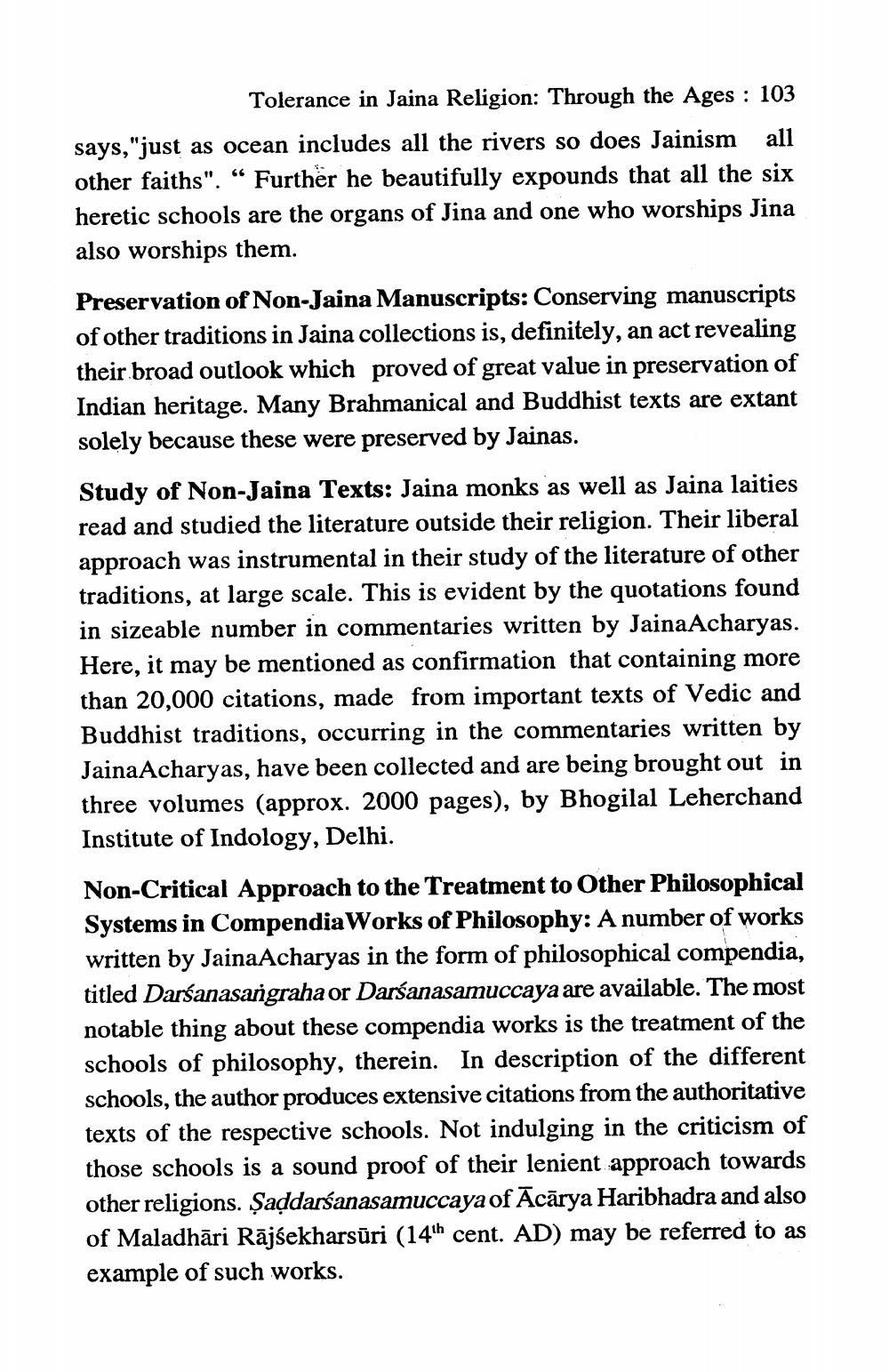________________
Tolerance in Jaina Religion: Through the Ages : 103 says, "just as ocean includes all the rivers so does Jainism all other faiths". “ Further he beautifully expounds that all the six heretic schools are the organs of Jina and one who worships Jina also worships them. Preservation of Non-Jaina Manuscripts: Conserving manuscripts of other traditions in Jaina collections is, definitely, an act revealing their broad outlook which proved of great value in preservation of Indian heritage. Many Brahmanical and Buddhist texts are extant solely because these were preserved by Jainas.
Study of Non-Jaina Texts: Jaina monks as well as Jaina laities read and studied the literature outside their religion. Their liberal approach was instrumental in their study of the literature of other traditions, at large scale. This is evident by the quotations found in sizeable number in commentaries written by JainaAcharyas. Here, it may be mentioned as confirmation that containing more than 20,000 citations, made from important texts of Vedic and Buddhist traditions, occurring in the commentaries written by JainaAcharyas, have been collected and are being brought out in three volumes (approx. 2000 pages), by Bhogilal Leherchand Institute of Indology, Delhi. Non-Critical Approach to the Treatment to Other Philosophical Systems in CompendiaWorks of Philosophy: A number of works written by JainaAcharyas in the form of philosophical compendia, titled Darśanasangraha or Darśanasamuccaya are available. The most notable thing about these compendia works is the treatment of the schools of philosophy, therein. In description of the different schools, the author produces extensive citations from the authoritative texts of the respective schools. Not indulging in the criticism of those schools is a sound proof of their lenient approach towards other religions. Șaddarśanasamuccaya of Ācārya Haribhadra and also of Maladhāri Rājśekharsūri (14th cent. AD) may be referred to as example of such works.




